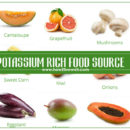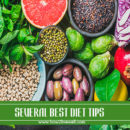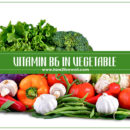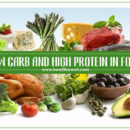Foods Rich Vitamin B6
Vitamin B6, also known as pyridoxine, is a water-soluble vitamin that is part of the vitamin-B complex group and is also one of the most important and industrious nutrients in the human body. Vitamin B6 is an essential nutrient for a number of reasons. It plays a vital role in many of the chemical reactions that take place in the body, it helps in the formation of heme in red blood cells which carry oxygen around the body and it is essential to metabolize foods into energy.
What does Vitamin B6 do?
Vitamin B6 is a water-soluble B vitamin that plays a significant role in helping make amino acids that build body cells, including muscles. Vitamin B6 also helps produce red blood cells, infection-fighting antibodies and insulin (a hormone that uses glucose, synthesizes protein and stores fat).
What are the best food sources? Rich food sources of vitamin B6 include chicken, fish, whole grains, beans, fortified cereals and nuts. Some soy-based meat substitutes are fortified with vitamin B6.
What happens if you don’t get enough?
Vitamin B6 deficiency, while rare, can occur in people consuming poor-quality diets. Symptoms typically don’t occur until the later stages of deficiency. Signs of deficiency can include skin rashes, depression, nausea, convulsions and confusion.
What happens if you get too much?
No adverse effects have been associated with high intakes of vitamin B6 from foods. Very large doses of supplemental vitamin B6 (in the form of pyridoxine) have been associated with painful nerve damage in the extremities (e.g., fingers, toes).
This vitamin also helps to lower stress, decrease symptoms of PMS, treat depression, lower cholesterol and reduce the risk of dental cavities. It also aids in the maintenance of nerve health and brain function. By not consuming a sufficient amount of B6 in your diet, you could be at risk of vitamin B6 deficiency, which manifests in symptoms such as tongue inflammation, irritability, fatigue, weakness and scale-like formations on the skin and mouth. It can also lead to depression and seizures. To avoid vitamin B6 deficiency, you should attempt to include the following Vitamin B6-rich foods in your diet.
Meat
Vitamin B6 can be found in many common and versatile meats. Chicken, turkey, beef, and pork are all excellent sources of the nutrient. One serving of roasted chicken breast contains as much as 0.64mg of B6 and the same amount of turkey contains 0.54mg. Because meats are easy to incorporate into your diet through simple recipes and even snacks such as sandwiches, increasing your B6 intake by the consumption of meats is simple and effective.
Fish
As with meats, certain fish are rich in vitamin B6. Cod, salmon, halibut, trout, tuna and snapper are just some examples of fish which contain high levels of B6 and can form part of a healthy, balanced diet. Yellowfin tuna is one of the best dietary sources of vitamin B6 with 1.8mg found in a single serving. In addition to this, it is one of the healthiest sources of the nutrient. A serving of baked snapper or salmon contains 0.52mg and halibut contains 0.45mg.
Vegetables
Most vegetables typically contain reasonable levels of vitamin B6, but there are some vegetable powerhouses that are B6-rich. Bell peppers, spinach, baked potatoes (skin included), green peas, yams, broccoli, asparagus and turnip greens are all excellent sources of vitamin B6. These vegetables are also, for the most part, low in fat and contain other vitamins and nutrients that are essential for good health.
Nuts and Seeds
Peanuts, sunflower seeds, cashews and hazelnuts, which contain 0.6mg of 6 per serving – are all good sources of vitamin B6 and can be eaten as snacks or added to popular recipes.
Whole grains and Bran
Whole-wheat bread, cereals, bran and other whole grains are rich in vitamin B6 and are probably already part of your daily diet. Wheat germ contains 3mg of vitamin B6 per 100g, making it one of the most valuable sources of the nutrient.
Beans and Legumes
Chickpeas, lentils and soybeans are just some examples of vitamin B6-rich beans and legumes. Kidney beans are another good source of the nutrient. By including a single serving of any of these foods with your meals, you can maintain your intake of vitamin B6 and lower the risk of experiencing B6 deficiency.













